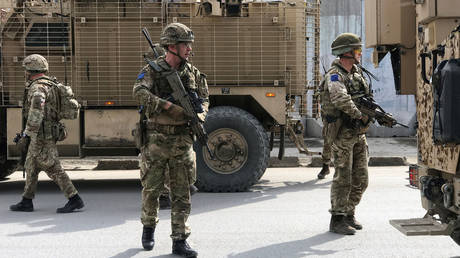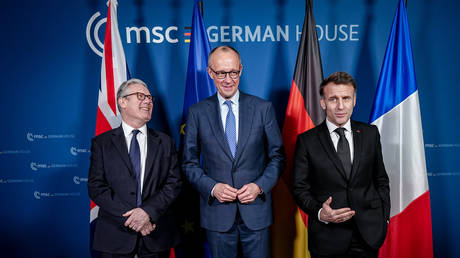
America’s pullout from Afghanistan might turn it into “a platform for international terrorists,” NATO Secretary General Jens Stoltenberg warned, hours before the Pentagon announced the withdrawal of some 2,000 US troops.
“Afghanistan risks becoming once again a platform for international terrorists to plan and organize attacks on our homelands,” Stoltenberg said in a statement that came in the wake of initial reports of Washington eyeing to slashing the number of the US troops it still has in the country.
The Pentagon announced on Tuesday that it will be going ahead with President Donald Trump’s order to cut down troops in Iraq and Afghanistan, leaving 2,500 troops in each country by January 15. While the cut will see some 500 troops leave Iraq, some 2,000 US soldiers will be coming home from Afghanistan.
The news did not sit down well with the NATO secretary general, who was quick to note that Afghanistan could become a new staging ground for a resurgent Islamic State (IS, formerly ISIS/ISIL) “caliphate” after the terrorist group had been largely defeated in Syria and Iraq.
While admitting that the NATO forces have already been stationed in Afghanistan “for almost 20 years,” Stoltenberg argued that “the price for leaving too soon or in an uncoordinated way could be very high.”
“We went into Afghanistan together,” Stoltenberg said, adding that the allied forces should “leave together in a coordinated and orderly way,” but only “when the time is right.” He added that he counts “on all NATO allies to live up to this commitment, for our own security.”
Stoltenberg hinted that the Alliance has plans to stay in Afghanistan through 2024, to train, advise and assist local security forces.
The Pentagon has also resisted Trump’s efforts to extricate the US from “endless wars” in the Middle East, prompting him to fire a number of senior officials last week. Acting Defense Secretary Christopher Miller hinted at withdrawal plans, reported in the press as rumors, by saying that “all wars must end.”
The US contingent currently accounts for less than a half of the 12,000-strong NATO force in Afghanistan but the alliance still heavily relies on Americans for transportation, logistics and air support. Whether the NATO troops really need to stay there is another question, though.
NATO took charge of the operations in Afghanistan back in 2003, two years after the US-led coalition invaded it to oust Taliban in response to 9/11 attacks. Stoltenberg maintains that the Alliance came there to “ensure that it would never again be a safe haven for international terrorists.”
Almost 20 years later, the Alliance can hardly say “mission accomplished.” Although the Taliban was ousted from power, the NATO-aided forces loyal to the government in Kabul have failed to defeat the militant group that still controls large chunks of territory.
In 2018, the US commander in Afghanistan openly admitted the war against Taliban cannot be won, while a 2019 Washington Post report based on official documents revealed that the US officials lied to the public about the alleged progress of the Afghan campaign for years.
The Alliance was just as ineffective in preventing other extremist groups – including Islamic State – from establishing presence in Afghanistan. In fact, it was Taliban that engaged in a sort of a turf war with IS, after the group gained a foothold in several provinces over the past years.
Trump has negotiated a peace deal with the Taliban in February 2020. It involves the withdrawal of all foreign troops from Afghanistan in exchange for Taliban engaging in talks with the Afghan government to find a peaceful political solution to the long-lasting conflict.
However, parts of the US establishment and some of America’s allies say it is too early to end the “forever war.” The US Senate Majority Leader Mitch McConnell and French Foreign Minister Jean-Yves Le Drian have already pushed back against the Trump administration’s plan even before its details were officially revealed.
Like this story? Share it with a friend!




